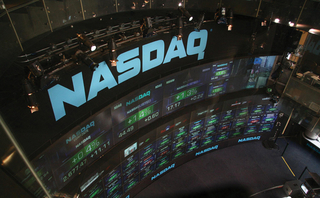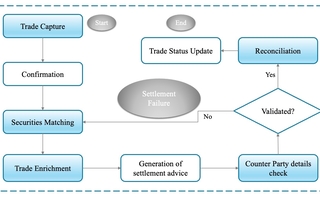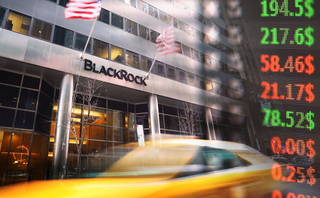Data analytics dominate M&A agenda for exchanges in 2022
While there weren’t many headline-grabbing acquisitions in 2022, the year contained a handful of deals that point to expanding trends in the exchange technology industry.

Mergers and acquisitions offer enlightining glimpses into a company’s strategic roadmap. They provide tell-tale signs of a firm’s ambitions and provide a unique vantage point, overlooking where these businesses are placing their bets on how tech and data services will evolve.
Over the last few years, there have been some major M&A aggrements in the realm of data and technology. While 2022 did not have what some might call “blockbuster” deals, it was a key year for highlighting a significant trend: the need for exchanges to diversify their offerings beyond traditional market data services.
Exchanges have been snapping up data providers in a bid to expand their businesses beyond traditional transactional and market data-based revenues. In years past, there was the Intercontinental Exchange’s purchase of Interactive Data; Nasdaq buying Quandl; the London Stock Exchange Group acquiring Refinitiv; and Cboe assembling a cadre of analytics providers by piecing together the likes of Livevol, Trade Alert, Hanweck and FT Options.
While the deals weren’t always as large as those, that trend continued in 2022.
LSEG was once again the exchange making the biggest splash, with the acquisitions of buy-side OEMS and portfolio management system technology provider Tora (February), market data provider MayStreet (May), and margin processing firm Acadia (December).
First, Tora, which was acquired for $325 million. The appeal for the exchange operator is clear: LSEG doesn’t currently have an OEMS that has a strong presence in the growth market of Asia. Tora also helps LSEG expand its fixed income, foreign exchange (FX), derivatives, and, perhaps most importantly, its cryptocurrencies coverage, since the exchange doesn’t currently have any products that enable for the execution of digital assets.
“Global banks have been very vocal about providing digital asset trading to their clients,” Dean Berry, group head of trading and banking solutions at LSEG, told WatersTechnology at the time of the deal. “As such, they will need a trusted partner to be able to execute on crypto, and we want to be that trusted partner. To be clear, we are acting as the infrastructure to facilitate the trading, akin to a motorway network. These banks could go directly to the crypto exchanges and build connectivity directly, but that can be timely, expensive, and difficult to maintain—so many are choosing to connect via an infrastructure provider.”
Next, came MayStreet. At the time of the deal, sources told WatersTechnology that MayStreet will enable the exchange’s Refinitiv data vendor business to update the legacy infrastructure technologies of its Refinitiv direct feeds (previously known as the Reuters Data Feed Direct, or RDFD), and gain access to high-quality market data, packet-capture capabilities, and quant tools that it did not have before, industry insiders say.
Whatever its motive—to update its infrastructure, bring new capabilities, or snap up a potential competitor—LSEG clearly sees MayStreet as a valuable asset. The exchange did not disclose the terms of the deal. However, estimates of the value are substantial enough to eat up a sizable chunk of the $200 million that the exchange announced it would invest in Refinitiv, following the completion of its acquisition in 2021—most of which would be spent on upgrading the vendor’s legacy technology.
Finally, the Acadia deal came through the door at the close of 2022.
The agreement follows LSEG’s £274 million takeover of post-trade optimization provider Quantile Technologies, which closed earlier in December. Through these maneuvers, the exchange hopes to turbo-charge the expansion of a division that provides post-trade services for non-cleared derivatives, as both acquisitions were made with an eye on bolstering the growth of LSEG’s SwapAgent platform, which brings bilateral trades under a standard credit support annex (CSA) and unlocks many of the side-benefits of clearing, such as compression, optimization, and straight-through processing.
While LSEG has certainly expanded its data and technology footprint globally, as industry insiders have told us throughout the year, the key to LSEG’s future success will be the integration of these products, especially with the varied Refinitiv product base.
Perhaps the most interesting thing regarding LSEG was its partnership with Microsoft, where the Big Tech company purchased approximately a 4% equity stake in LSEG through the acquisition of shares from the Blackstone/Thomson Reuters Consortium. (To read more about what that pairing might mean for the capital markets in 2023, click here.)
Beyond LSEG’s moves, one of the more intriguing deals from 2022 was Canada’s TMX acquisition of Boston-based events data vendor Wall Street Horizon (WSH). Michelle Tran, president of TMX’s Datalinx data division, told WatersTechnology that the move was made to expand the amount of unique content the exchange can deliver to clients.
Mainly, the addition will bolster TMX’s corporate actions offering, as WSH has a global reach and coverage of 10,000 corporate events for companies listed on exchanges worldwide.
“Wall Street Horizon helps us round out our coverage globally, and brings the depth and breadth we need for corporate actions,” Tran said.
Additionally, the exchange will eventually package the WSH data with other proprietary TMX content—for example, using its corporate events data to underpin new benchmarks and thematic indexes. In addition to its alpha-generating potential for traders and investors, Tran said listed companies are also interested in the potential of WSH’s data to increase transparency around their issued securities.
Soon after the TMX-WSH pairing was announced, OTC Markets snapped up filings and financial data vendor Edgar Online in what may be a sign that even smaller marketplaces are getting in on the act.
The economic drivers for this continuing trend are well established, said Jesse Forster, senior analyst in Coalition Greenwich’s equity market structure and technology practice. “Exchanges get the opportunity to supplement more volatile transaction revenues with more stable data revenues, while their clients among brokers and investors are demanding more robust datasets, like Edgar filings. So, it becomes a no-brainer for exchanges to move into that data space.”
But this particular acquisition potentially offers OTC Markets more strategic options than recent deals that have made larger exchange–data vendor combinations a running trend.
“We’re not the same scale as some other exchanges, so we need to be more nimble,” Matt Fuchs, executive vice president of market data and strategy at OTC Markets, told WatersTechnology.
Beyond Edgar’s brand recognition, the deal offers potential savings because the exchange had been a customer of Edgar Online for many years, and now—by virtue of owning the business and source data—no longer needs to pay licensing fees for the data. That opens up a wealth of possibilities for expanding its products that use the data.
At the same time, exchanges have turned their sights on smaller data and analytics providers, the trickle-down effect is those providers need to make deals with one another if they don’t want to get swallowed by an exchange. Scale is the name of the game, and the best way to do that is to combine services through M&A.
For example, in 2021, we saw the pairings of Exegy-Vela and Options-Activ. To kick off 2022, Pico announced that it had acquired Redline Trading Solutions. The middle market for market data technology companies was once a crowded space, but M&A activity has ramped up as these smaller firms have realized they can better fend off rivals and take on bigger competitors by joining forces.
The key thing to remember is, as Max Bowie noted in a deep-dive feature in March, recent tech-and-data M&A deals aren’t just about acquiring clients or ‘bolt-on’ solutions—they are about yielding longer-term gains through granular integration of the vendors’ product lines and technologies. But with M&A, as always, the devil will be in the details.
Further reading
Only users who have a paid subscription or are part of a corporate subscription are able to print or copy content.
To access these options, along with all other subscription benefits, please contact info@waterstechnology.com or view our subscription options here: http://subscriptions.waterstechnology.com/subscribe
You are currently unable to print this content. Please contact info@waterstechnology.com to find out more.
You are currently unable to copy this content. Please contact info@waterstechnology.com to find out more.
Copyright Infopro Digital Limited. All rights reserved.
You may share this content using our article tools. Printing this content is for the sole use of the Authorised User (named subscriber), as outlined in our terms and conditions - https://www.infopro-insight.com/terms-conditions/insight-subscriptions/
If you would like to purchase additional rights please email info@waterstechnology.com
Copyright Infopro Digital Limited. All rights reserved.
You may share this content using our article tools. Copying this content is for the sole use of the Authorised User (named subscriber), as outlined in our terms and conditions - https://www.infopro-insight.com/terms-conditions/insight-subscriptions/
If you would like to purchase additional rights please email info@waterstechnology.com
More on Trading Tech
For MarketAxess, portfolio trading buoys flat revenue in Q3
The vendor is betting on new platforms like X-Pro and Adaptive Auto-X, which helped forge a record quarter for platform usage.
Quants look to language models to predict market impact
Oxford-Man Institute says LLM-type engine that ‘reads’ order-book messages could help improve execution
JP Morgan pulls plug on deep learning model for FX algos
The bank has turned to less complex models that are easier to explain to clients.
Nasdaq says SaaS business now makes up 37% of revenues
The exchange operator’s Q3 earnings bring the Adenza and Verafin acquisitions center stage.
Harnessing generative AI to address security settlement challenges
A new paper from IBM researchers explores settlement challenges and looks at how generative AI can, among other things, identify the underlying cause of an issue and rectify the errors.
The causal AI wave could be the next to hit
As LLMs and generative AI grab headlines, another AI subset is gaining ground—and it might solve what generative AI can’t.
Waters Wrap: Operational efficiency and managed services—a stronger connection
As cloud, AI, open-source, APIs and other technologies evolve, Anthony says the choice to buy or build is rapidly evolving for chief operating officers, too.
BlackRock forecasts return to fixed income amid efforts to electronify market
The world's largest asset manager expects bond markets to make headway once rates settle.








